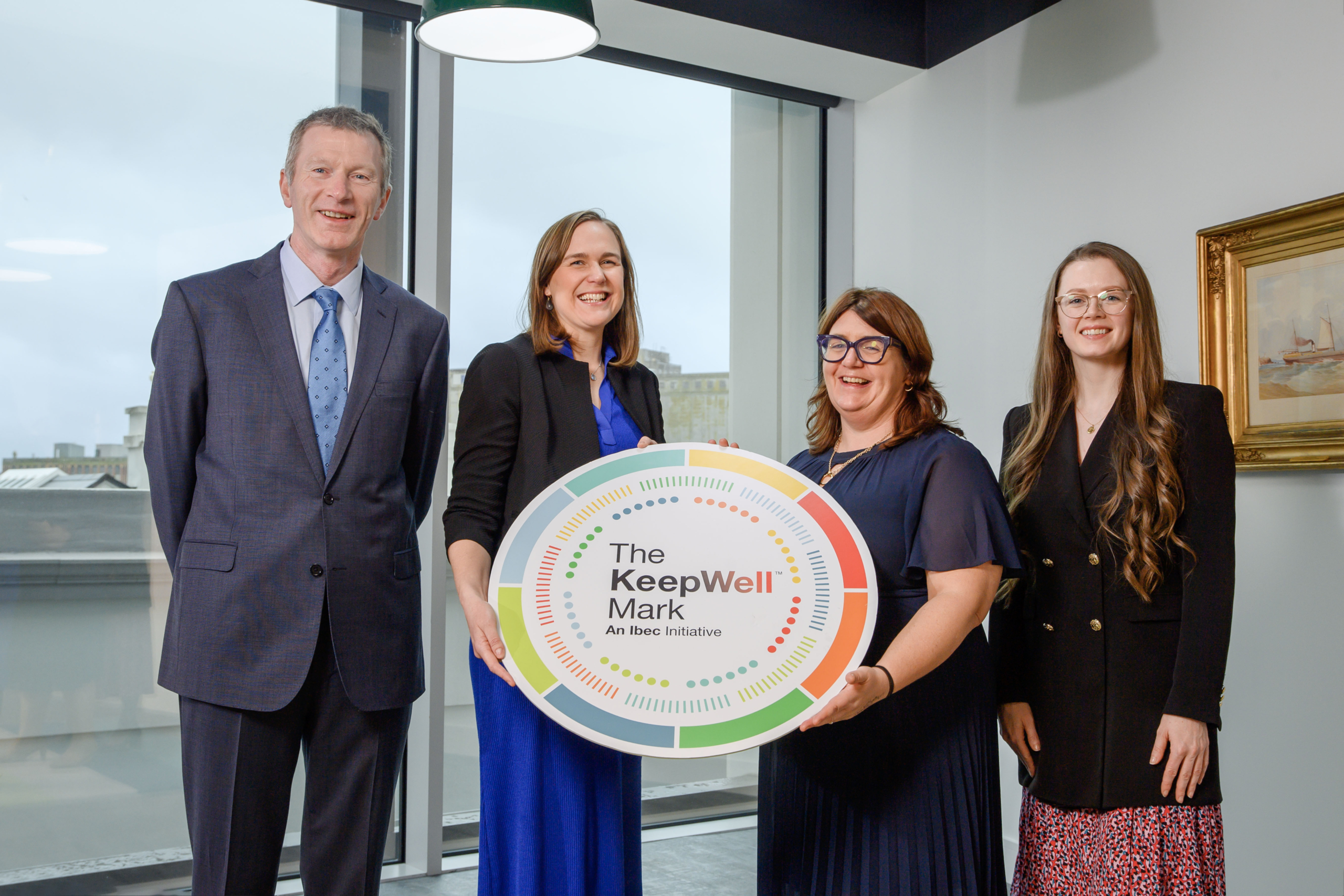
Pictured L-R: James O’Connor (Managing Partner, Crowleys DFK), Claire Shiels (Corporate Fundraiser, LauraLynn) and Natalie Kelly (Partner, Crowleys DFK)
In early 2020, we announced LauraLynn, Ireland’s Children’s Hospice as our Charity Partner. Not long after, members of our CSR Team visited the hospice and came back inspired and full of ideas on how we could help raise funds and awareness for this amazing charity… but then everything changed.
With all our fundraising plans impossible due to the lockdown reality we were all in, we had to find new ways to support LauraLynn and the children and families that relied on them.
This kickstarted our virtual fundraising initiatives. From our Virtual Walk Across the US and Canada, Wear Your Christmas Face Mask and Christmas Gifting campaigns, a lot (!) of Step Challenges, our Donate as your Earn campaign and various raffles, the employees at Crowleys DFK dug deep and put their hearts into each and every campaign.
“It has been a pleasure to be involved with our Firm’s campaigns. Knowing how difficult the last few years would have been on fundraising for LauraLynn, it has been an honour to help out where I can.”
Elaine Murphy, Assistant Manager, Audit and Assurance
“I feel very proud of the Firm’s fundraising initiatives supporting LauraLynn over the last few years and being able to participate in these initiatives means a lot to me personally knowing that the funds raised are making a difference to the children and their families.”
Paula McCann, Human Resources
While all these initiatives raised some vital funds for the Charity during what was a very challenging few years, we are in no doubt that we got a lot more back from the partnership. Not only were we continually inspired and moved by our online talks with the incredible staff and care givers at LauraLynn, but our initiatives also kept us connected during a time when we all had to be apart.
“I have enjoyed participating over the past few years as not only do you know you are helping a good cause, but it has given us the opportunity to interact with our colleagues during a time we were unable to meet face to face.”
Emma Dunne, Manager, Corporate Compliance
“It has been a great way to connect with my colleagues, many of whom I hadn’t met in person in 2 years. Ultimately, we have all benefited hugely from both a mental & physical health perspective by getting involved with a fantastic and very deserving charity.”
Harry O’Sullivan, Partner, Audit & Assurance
Our final fundraising campaign, Week of Celebrating LauraLynn, took place in late November and pushed the total funds raised over the 3 years (of what initially meant to be a 1 year partnership) to €45,045.
“I knew very little about LauraLynn and their work before we began supporting them as our Charity Partner. The past three years has really made me aware of the incredible commitment and passion that volunteers give to so many worthwhile causes. LauraLynn are doing incredible work and it’s been fantastic to see so many of my work colleagues and friends take part in our initiatives.”
James O’Connor, Managing Partner
On 7th December 2022, Crowleys DFK returned to LauraLynn for another onsite visit. While some things had changed since our first visit (outdoor meeting pods, and the new Memorial Tree and Garden), the most important things did not…the care and dedication from each of the wonderful staff we met and the pure sense of peace and warmth coming from every corner of the hospice.
“As a Corporate Partner, LauraLynn could not have asked for more. The team at Crowleys DFK demonstrated creativity in staff and office fundraising initiatives, enthusiastically signed up for challenges and events, and helped us out with volunteering. They were invested in understanding the work we do with children and families, and helping raise awareness of LauraLynn, its services and supports, and its funding needs. Crowleys DFK is a company and a team that is committed to making an impact in its charity work, and undertakes it with energy, commitment and heart. Working with them over the past 3 years has been a pleasure, and their contribution has made a big difference for the children and families in our care.”
Claire Shiels, Corporate Fundraiser, LauraLynn Ireland’s Children’s Hospice.
It has been an honour and pleasure to have supported LauraLynn for the last 3 years. LauraLynn has and will always remain very close to all our hearts.












